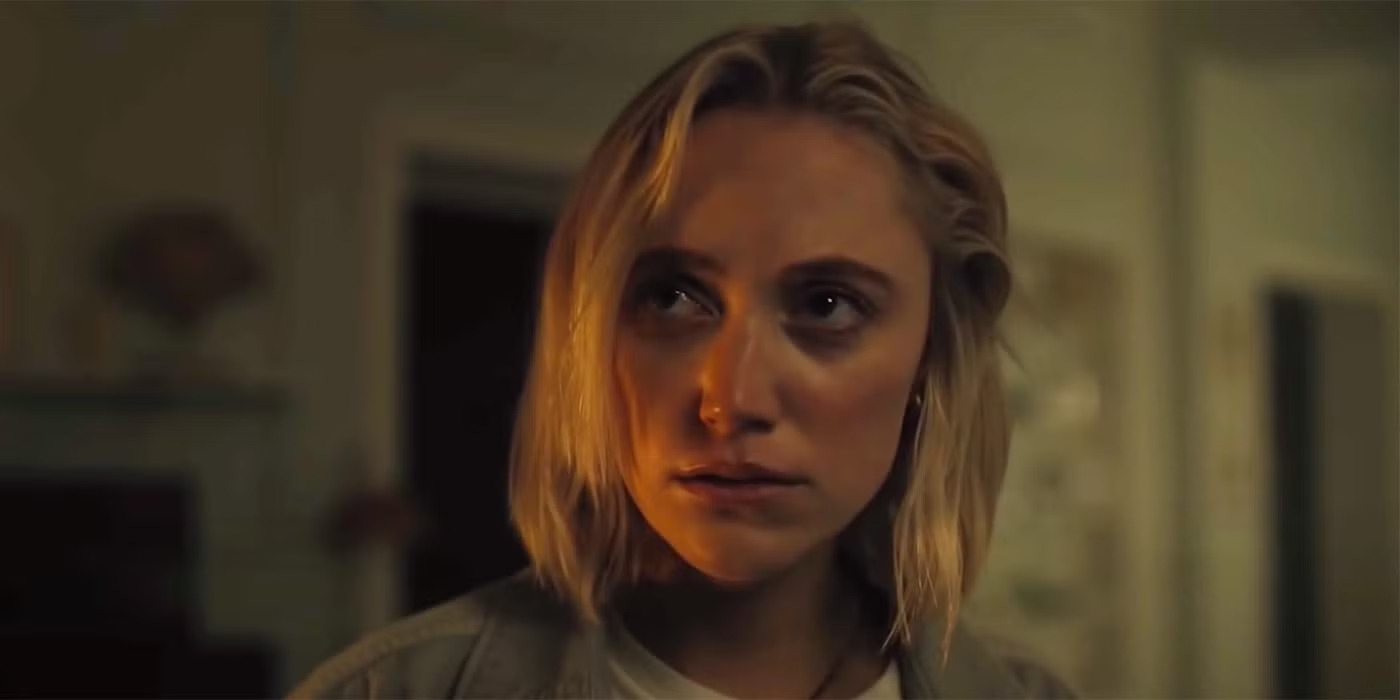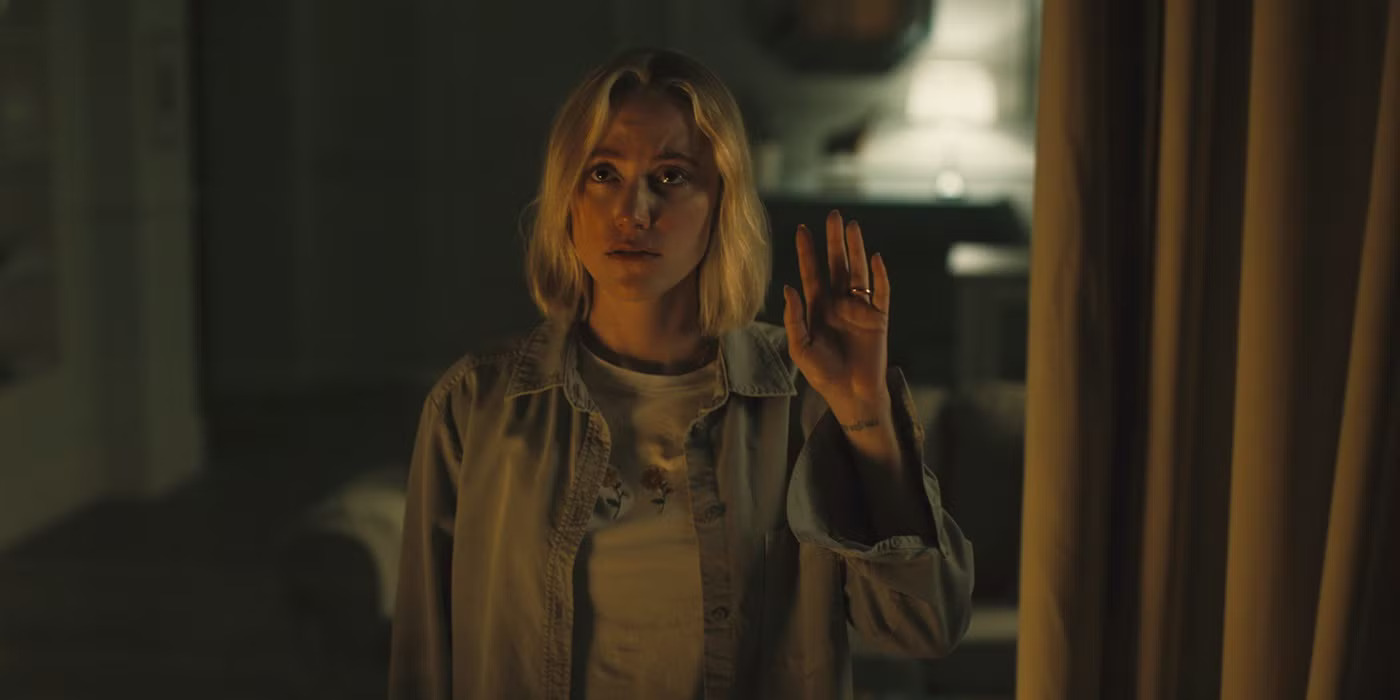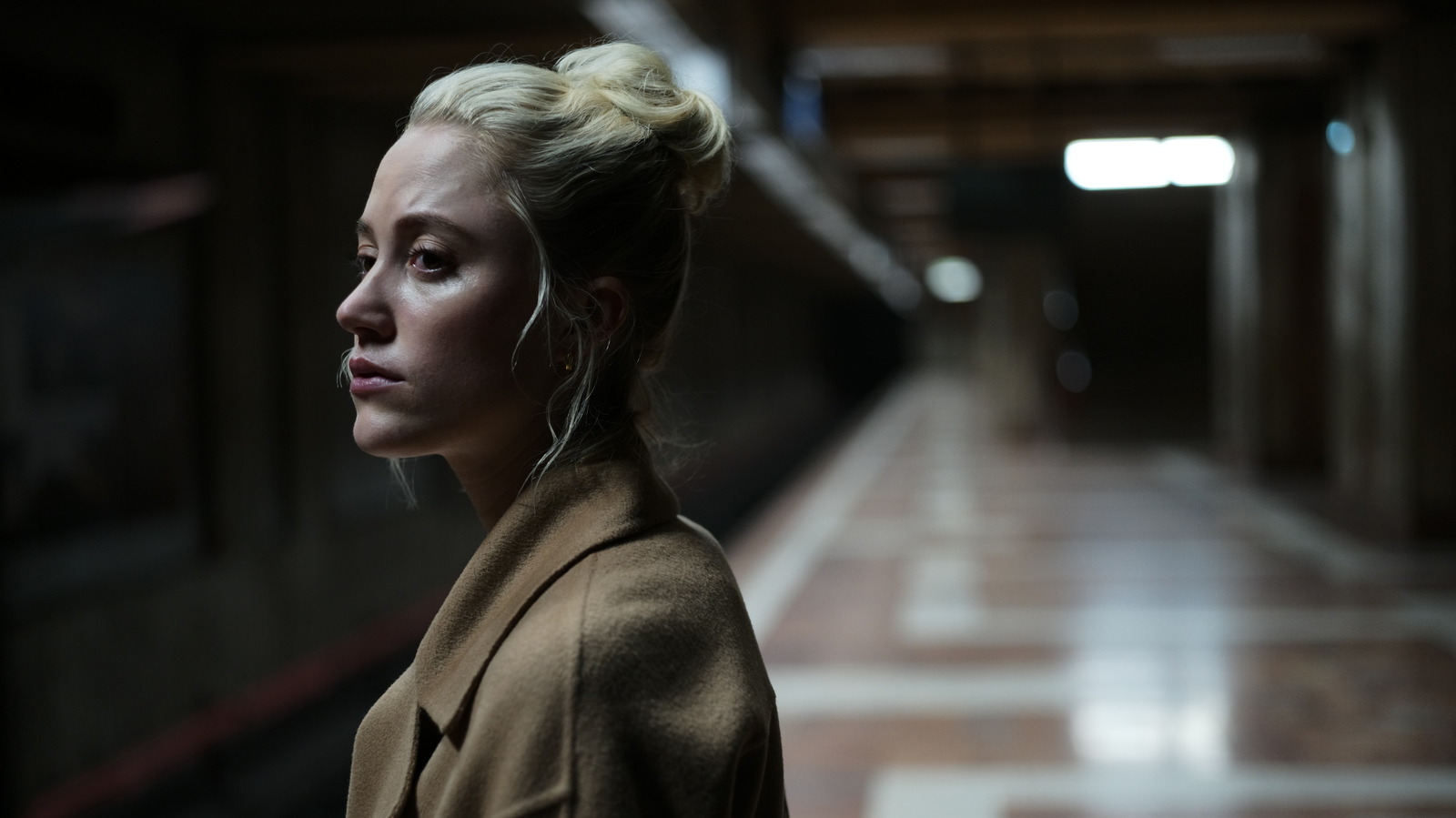Watcher, directed by Chloe Okuno, is a psychological thriller that masterfully explores the themes of paranoia, surveillance, and gender dynamics. The film premiered at the 2022 Sundance Film Festival, earning a nomination for the Grand Jury Prize. Despite a modest box office performance of just over $3 million, Watcher has found new life on streaming platforms, particularly on Netflix, where it has surged in popularity.
Shot in Bucharest, Romania, the film employs stark cinematography, an eerie color palette, and an overarching sense of unease to create a haunting atmosphere. With its slow-building tension and thought-provoking themes, Watcher grips audiences by tapping into a universal fear: the feeling of being watched.
The film centers on Julia (Maika Monroe), a former actress who relocates to Bucharest with her husband, Francis (Karl Glusman), after he gets a job transfer. Despite the city’s beauty, Julia struggles with a profound sense of alienation. She doesn’t speak the language, has no friends, and spends much of her time alone while Francis is at work.
This isolation makes her particularly vulnerable when she begins to notice a man in the apartment across from her, seemingly watching her through the window. Her unease intensifies as she repeatedly sees him in public places, leading her to believe she is being stalked.
Her fears are compounded by news reports of a serial killer, nicknamed “The Spider,” who is targeting women in the area—sometimes decapitating them. Julia’s paranoia grows, especially after her neighbor and only friend, Irina (Mădălina Anea), mysteriously vanishes.

When Fear Becomes Reality and the Watcher Becomes the Watched
As Julia’s anxiety escalates, those around her—including Francis—dismiss her concerns, insisting she is overreacting. However, her suspicions reach a boiling point when she finally confronts the man she believes to be watching her, Daniel (Burn Gorman). Instead of confessing, Daniel turns the tables, claiming that Julia has been following him.
He even arrives at her apartment with a police officer, attempting to paint himself as a victim. Though Julia apologizes to him out of fear, she remains deeply unsettled, especially when she notices he is carrying a suspicious bag—its shape disturbingly reminiscent of a human head.
Later, Julia hears music coming from Irina’s apartment and goes to investigate, only to find Irina’s headless body. Before she can escape, Daniel appears and suffocates her with a plastic bag.
It is revealed that he had been hiding inside Irina’s apartment when Julia and the landlady previously searched the place. Daniel sadistically watches as Julia struggles for breath, reinforcing the film’s central theme: the predator’s dominance over his prey.
Just as Daniel prepares to kill Julia, he is momentarily distracted by Francis calling out for her from the hallway. Seizing the opportunity, Julia pretends to be dead, waiting for the perfect moment to strike.
In a shocking turn, she grabs a gun and shoots Daniel multiple times, ultimately killing him. The film does not end on this victorious note, however. Instead, it concludes with Julia staring at her husband—her gaze filled with resentment. Francis, who repeatedly dismissed her concerns, now has to confront the fact that she was right all along.
While Daniel is the literal watcher, the film suggests that everyone plays the role of both observer and observed. Throughout the movie, Julia becomes just as obsessed with watching Daniel as he is with watching her. This mirrors classic psychological thrillers by directors like Brian De Palma, who often explored the fine line between voyeur and victim.
Even Daniel himself is caught in a moment of fear when he realizes that someone else is watching him. The film’s title, Watcher, thus takes on multiple meanings, emphasizing the inescapable nature of surveillance and paranoia.

How Watcher Explores Society’s Tendency to Dismiss Women’s Fears
At its core, Watcher is a commentary on the societal tendency to dismiss women’s fears. Director Chloe Okuno has spoken about how the film was inspired by real-life experiences of women feeling unsafe but not being taken seriously.
Julia’s journey reflects the struggles many women face when their concerns are downplayed by the men in their lives. Her husband, Francis, is not portrayed as malicious, but his failure to support her highlights a pervasive issue: the reluctance to believe women when they say they feel threatened.
Maika Monroe, who plays Julia, has echoed these sentiments, noting that the film’s emotional core lies in the isolation and betrayal Julia experiences. One of the most heartbreaking aspects of Watcher is not just the presence of a stalker but the loneliness that comes from not being believed. The horror isn’t just Daniel—it’s also the societal conditioning that teaches women to second-guess themselves.
Unlike many thrillers that rely on last-minute plot twists, Watcher subverts expectations by delivering exactly what it promises. Julia suspects Daniel from the start, and in the end, she is proven right. The “twist” is that there is no twist—her paranoia wasn’t paranoia at all.
Okuno has stated that this deliberate choice was meant to emphasize the film’s central message: that women’s fears are often dismissed, yet their instincts are frequently correct. The final shot of Julia, bloodied and exhausted, staring at Francis speaks volumes. It’s not just a look of exhaustion but one of realization—she had to go through hell to be believed.
If you’re intrigued by Watcher and want to experience its slow-burning suspense and psychological depth, the film is currently available on Netflix and AMC+. It can also be rented or purchased on Amazon Prime. Whether you’re a fan of psychological thrillers or films that explore gender dynamics, Watcher is a must-watch for anyone who has ever felt the unsettling presence of unseen eyes.



